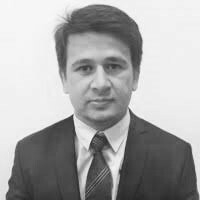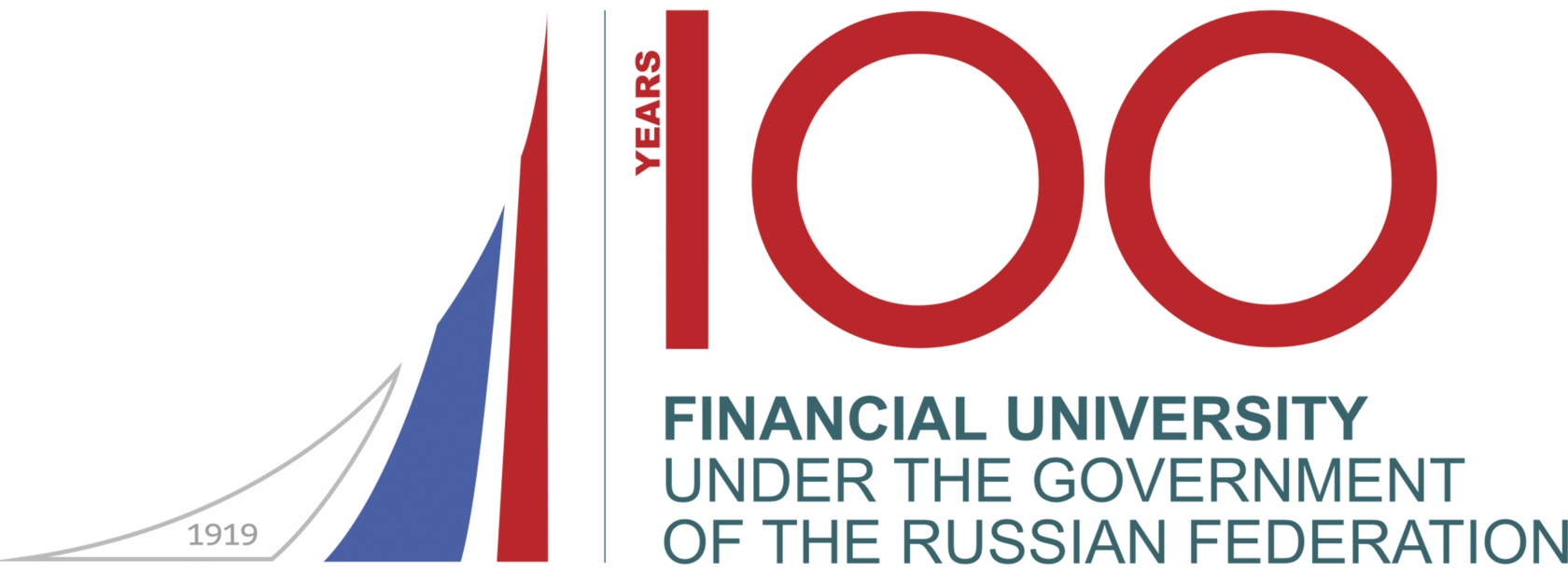TEDS'21
TECHNOLOGY & ENTREPRENEURSHIP
IN DIGITAL SOCIETY
Make your contribution to the field of technology and entrepreneurship in the digital era.
About our place and mission
The technological advancements have a crucial impact on economic systems and how economic values will be created. Among constant rethinking of strategies, managerial practices and environments to address existing challenges, researchers and practitioners look at the variety and diversity of new trends emerged due to globalization and technological breakthroughs.
The Technology & Entrepreneurship in Digital Society Conference is an opportunity to bring together researchers and experts in emerging technologies from both public and private sectors to discuss issues related to the development, implementation, use, and management of emerging technologies and the move to the digital economy.
The mission of the Conference is to promote innovative research that highlights the impact of emerging technologies of the digital economy on the business models and entrepreneurship. The Conference committee welcomes submissions from researchers and practitioners working in a wide variety of fields, particularly those that probe the relationships and interdependencies among innovation, economic development, and the intersection of technology and entrepreneurship.
The conference takes place annually since 2018.
The working language of the Conference is English.
All materials of the TEDS conference are published by Publishing house «Real economy» LLC
The Technology & Entrepreneurship in Digital Society Conference is an opportunity to bring together researchers and experts in emerging technologies from both public and private sectors to discuss issues related to the development, implementation, use, and management of emerging technologies and the move to the digital economy.
The mission of the Conference is to promote innovative research that highlights the impact of emerging technologies of the digital economy on the business models and entrepreneurship. The Conference committee welcomes submissions from researchers and practitioners working in a wide variety of fields, particularly those that probe the relationships and interdependencies among innovation, economic development, and the intersection of technology and entrepreneurship.
The conference takes place annually since 2018.
The working language of the Conference is English.
All materials of the TEDS conference are published by Publishing house «Real economy» LLC
KEYNOTE SPEAKERS

Alexander Brem
Chaired Professor of Entrepreneurship in Technology and Digitization, endowed by the Daimler Fund in the Stifterverband, Germany
Alexander Brem is an endowed chaired professor and institute head at the University of Stuttgart, Stuttgart (Germany). In addition, he is an honorary professor with the University of Southern Denmark. His research interests include technological innovation and entrepreneurship. He is editorin-chief of the International Journal of Innovation and Technology Management, as well as associate editor for IEEE Transactions and Engineering Management as well as Technological Forecasting and Social Change. He has published several books in the areas of innovation and entrepreneurship, as well as many articles in international journals such as Technovation, Journal of Cleaner Production or Strategic Entrepreneurship Journal.

Samo Bobek
Dean of Faculty of Economics and Business (FEB) at University Maribor and a
professor of E-business and Information Managemen, Slovenia
professor of E-business and Information Managemen, Slovenia
Professor Bobek's is research areas are IT/IS Governance and Information management, Business solutions, E-business, Banking technology. He has published more than 250 articles, conference papers and book chapters. He teaches information systems and e-business courses on undergraduate, master and doctorate level. He is also a head of the academic department for E-business where he is a chair of bachelor study programme "E-business" and of master study programme "Information and E-business Management". He is a member of the Senate of University Maribor. Before being appointed as a dean of FEB in 2007 he was vice dean for research and vice dean for international cooperation at FEB. Professor Bobek also acts as consultant to several corporations, banks and insurance companies in Slovenia

Jörg Geisler
Head of finance and risk management divisions at S-Kreditpartner GmbH, the consumer credit specialist of the savings banks (Germany)
Jörg Geisler studied mathematics and economics at the University of Bayreuth. He has over 20 years of experience in the banking industry in various companies in Europe. In recent years, his focus has been on establishing digital business models in the field of consumer finance. Most recently, he was responsible for setting up the finance division for a JC Flowers owned Fintech with business in nine countries incl. Russia and served as CRO for the digital banking project of Home Credit Group in Germany. At the moment, he is in charge of the finance and risk management divisions at S-Kreditpartner GmbH, the consumer credit specialist of the savings banks in Germany.

Azizjon Bobojonov
Head of International Project office, Associate professor at Digital Economics department, Tashkent State University of Economics (Uzbekistan)
Dr. Bobojonov studied Tashkent State University of Economics. He was regional coordinator such projects as Erasmus+ Capacity building project - Modernization of higher education in Central Asia through new technologies project (HiEdTech);
Implementing ICT tools and methods in teaching, support digital development
Implementing ICT tools and methods in teaching, support digital development

Arkady Trachuk
CEO of Goznak, Dean of Higher School of Management Faculty at Financial University, Russia
Arkady has extensive experience in senior positions in the energy and banking sectors. Also, Arkady is author of numerous publications on strategic and innovative management, entrepreneurship and the formation of modern business models in the financial and real sectors of the economy, knowledge management, functioning and development of natural monopolies.
Arkady is a founder and scientific adviser of the Center for Industry Research and Consulting of the Financial University and Editor-in-chief of the Strategic Decisions & Risk Management journal.
Arkady is a founder and scientific adviser of the Center for Industry Research and Consulting of the Financial University and Editor-in-chief of the Strategic Decisions & Risk Management journal.
RESULTS
On November 9, 2021, the Plenary Session of the TEDS'21 conference took place, which is an integral part of the IX International Scientific and Practical Conference "Management Sciences in the Modern World". This year, due to the tense epidemiological situation, the event was held online. In total, about 450 people took part in the conference, 250 of them were students.
The conference has become a kind of brand, which includes more than fifteen different sections, - said the Dean of the Faculty of Higher School of Management of the Financial University (Russia) Arkady Trachuk , who moderated the plenary session.
- «The events that we are holding this year cover many areas of research in the field of management, public administration. This is certainly important in today's rapidly changing world, which is under the influence of the effects of the pandemic, on the path of digital transformation, and which has already realized the need to solve environmental problems. All these topics are the subjects of research, discussion in the field of real management and university research. We will discuss these issues during our events»
Arkady Trachuk said that in 2021 the conference participants would include representatives of Latvia, the Republic of Fiji, Kuwait, India, Uzbekistan, the Donetsk People's Republic, and Russia. Our country was represented by seven regions: Moscow and the Moscow region, Bryansk, Tver, Saratov, Arkhangelsk regions, the Republic of Tatarstan, Krasnodar Territory. The sections were attended by delegates from 25 universities, including 6 foreign ones.
The central event of the first day of the conference was the plenary session, during which representatives of Germany, Slovenia, Uzbekistan and Russia made presentations. The plenary session was opened by Arkady Trachuk. In his report, he talked about the goals of introducing digital technologies in the Russian industry. The speaker presented the results of the research carried out in the Department of Management and Innovation of the Faculty of Higher School of Management by a team of researchers.
"In the course of our work we identified 11 technologies that can have an impact on enterprises, and in which enterprises may be strategically interested. Among such technologies: robotization, additive technologies, radio frequency identification, blockchain, artificial intelligence technologies, cloud technologies, big data, digital twins and a number of others, - the speaker comments. "We also saw three key goals that practically all enterprises formulate for themselves: they are increasing labor or equipment productivity, adaptability and speed of response to changes, and the speed of bringing goods to market."
The report of Chaired Professor of Entrepreneurship in Technology and Digitization, endowed by the Daimler Fund in the Stifterverband, (Germany) Alexander Brem dealt with the artificial intelligence as a technology that allows to manage innovation. The expert is convinced that artificial intelligence will become the most important technology that will contribute to the development of technologies in the 21st century.
"Artificial intelligence is both an initiator and a coordinator of innovation, but in different contexts. The initiator works with young companies in terms of software and product line. The coordinator, in turn, works with hardware applications and product launch to the market," the speaker emphasized.
Jörg Geisler, Head of Finance and Risk Management at S-Kreditpartner GmbH, specialist in consumer lending at savings banks (Germany), examined an important topic - risk management in the era of digital innovations using the banking industry as an example .
"The digital transformation of our industry began about 10 years ago. It has already demanded investments in the amount of billions of euros and is not yet completed, says the speaker. - Recently, the European banking sector has been undergoing profound changes. There are three main drivers of these changes: after the 2007 financial crisis, the regulator's requirements for banks increased, and they were a challenge for our industry before. In parallel with this, the digital revolution began, and a whole wave of new startups in fintech appeared, which put pressure on traditional players who were forced to digitalize their business models. "
Dean of the Faculty of Economics and Business (FEB) of the University of Maribor and professor of e-business and information management (Slovenia) Samo Bobek presented his speech within the framework of the topic "Digital transformation impacts on business models". His presentation dealt with the digital transformation of the business models.
According to Samo Bobek, digital transformation is the integration of digital technologies into a company's business. The speaker's theory is based on a canvas of business model elements at the structural level that allow companies to refine their objectives. This business model was once formulated by the Swiss expert Alexander Osterwalder, who developed a strategic management tool or a diagram with 9 blocks, describing the different business processes of an organization. In other words, the expert showed the user experience in a digital transformation canvas, including cost models, income models, interaction models with consumers and partners, and then the structure that will result from the transformation.
The speaker concluded that there is probably no better business model. Each company needs to plan its steps, as well as where to plan changes and apply technologies and concepts.
The head of the international project office, associate professor of the Department of Digital Economy and Information Technologies of the Tashkent State Economic University (Republic of Uzbekistan), Azizjon Bobodjonov, spoke about new discoveries in the service sector during the era of digital transformation in his report on the topic "Reinventing the services in the digital age".
"The service sector accounts for 63% of all world welfare, in Russia 56% of this sector is the country's GDP. That means, a lot depends on this sector of the economy," the speaker noted. - Future economic growth depends on how services develop. And service innovation depends on e-services - the Internet, robots, and so on. Transactions are increasingly being done through technology. "
After the plenary session, the thematic sections took place in the following areas:
- Innovation and Technological Entrepreneurship
- Sustainable Development and Entrepreneurship
- Change management and leadership
- Business strategies and sustainable development
- International management and business
- Theoretical management issues
- Theory and practice of project management
- Corporate governance and corporate social responsibility
- Operations management and business process management
- Strategic financial management
- Public administration and problems of public sector efficiency
- Management of large cities and urban agglomerations
- Real sector investment management
- Crisis management and business continuity management
- Systems analysis in management
- Knowledge and talent management
- Sports digital governance
- Digital Marketing and Marketing Communications
- Formation of an innovative strategy in the context of the fourth industrial revolution.
On November 10, the work of the conference continued - meetings of the youth sections took place.
The conference has become a kind of brand, which includes more than fifteen different sections, - said the Dean of the Faculty of Higher School of Management of the Financial University (Russia) Arkady Trachuk , who moderated the plenary session.
- «The events that we are holding this year cover many areas of research in the field of management, public administration. This is certainly important in today's rapidly changing world, which is under the influence of the effects of the pandemic, on the path of digital transformation, and which has already realized the need to solve environmental problems. All these topics are the subjects of research, discussion in the field of real management and university research. We will discuss these issues during our events»
Arkady Trachuk said that in 2021 the conference participants would include representatives of Latvia, the Republic of Fiji, Kuwait, India, Uzbekistan, the Donetsk People's Republic, and Russia. Our country was represented by seven regions: Moscow and the Moscow region, Bryansk, Tver, Saratov, Arkhangelsk regions, the Republic of Tatarstan, Krasnodar Territory. The sections were attended by delegates from 25 universities, including 6 foreign ones.
The central event of the first day of the conference was the plenary session, during which representatives of Germany, Slovenia, Uzbekistan and Russia made presentations. The plenary session was opened by Arkady Trachuk. In his report, he talked about the goals of introducing digital technologies in the Russian industry. The speaker presented the results of the research carried out in the Department of Management and Innovation of the Faculty of Higher School of Management by a team of researchers.
"In the course of our work we identified 11 technologies that can have an impact on enterprises, and in which enterprises may be strategically interested. Among such technologies: robotization, additive technologies, radio frequency identification, blockchain, artificial intelligence technologies, cloud technologies, big data, digital twins and a number of others, - the speaker comments. "We also saw three key goals that practically all enterprises formulate for themselves: they are increasing labor or equipment productivity, adaptability and speed of response to changes, and the speed of bringing goods to market."
The report of Chaired Professor of Entrepreneurship in Technology and Digitization, endowed by the Daimler Fund in the Stifterverband, (Germany) Alexander Brem dealt with the artificial intelligence as a technology that allows to manage innovation. The expert is convinced that artificial intelligence will become the most important technology that will contribute to the development of technologies in the 21st century.
"Artificial intelligence is both an initiator and a coordinator of innovation, but in different contexts. The initiator works with young companies in terms of software and product line. The coordinator, in turn, works with hardware applications and product launch to the market," the speaker emphasized.
Jörg Geisler, Head of Finance and Risk Management at S-Kreditpartner GmbH, specialist in consumer lending at savings banks (Germany), examined an important topic - risk management in the era of digital innovations using the banking industry as an example .
"The digital transformation of our industry began about 10 years ago. It has already demanded investments in the amount of billions of euros and is not yet completed, says the speaker. - Recently, the European banking sector has been undergoing profound changes. There are three main drivers of these changes: after the 2007 financial crisis, the regulator's requirements for banks increased, and they were a challenge for our industry before. In parallel with this, the digital revolution began, and a whole wave of new startups in fintech appeared, which put pressure on traditional players who were forced to digitalize their business models. "
Dean of the Faculty of Economics and Business (FEB) of the University of Maribor and professor of e-business and information management (Slovenia) Samo Bobek presented his speech within the framework of the topic "Digital transformation impacts on business models". His presentation dealt with the digital transformation of the business models.
According to Samo Bobek, digital transformation is the integration of digital technologies into a company's business. The speaker's theory is based on a canvas of business model elements at the structural level that allow companies to refine their objectives. This business model was once formulated by the Swiss expert Alexander Osterwalder, who developed a strategic management tool or a diagram with 9 blocks, describing the different business processes of an organization. In other words, the expert showed the user experience in a digital transformation canvas, including cost models, income models, interaction models with consumers and partners, and then the structure that will result from the transformation.
The speaker concluded that there is probably no better business model. Each company needs to plan its steps, as well as where to plan changes and apply technologies and concepts.
The head of the international project office, associate professor of the Department of Digital Economy and Information Technologies of the Tashkent State Economic University (Republic of Uzbekistan), Azizjon Bobodjonov, spoke about new discoveries in the service sector during the era of digital transformation in his report on the topic "Reinventing the services in the digital age".
"The service sector accounts for 63% of all world welfare, in Russia 56% of this sector is the country's GDP. That means, a lot depends on this sector of the economy," the speaker noted. - Future economic growth depends on how services develop. And service innovation depends on e-services - the Internet, robots, and so on. Transactions are increasingly being done through technology. "
After the plenary session, the thematic sections took place in the following areas:
- Innovation and Technological Entrepreneurship
- Sustainable Development and Entrepreneurship
- Change management and leadership
- Business strategies and sustainable development
- International management and business
- Theoretical management issues
- Theory and practice of project management
- Corporate governance and corporate social responsibility
- Operations management and business process management
- Strategic financial management
- Public administration and problems of public sector efficiency
- Management of large cities and urban agglomerations
- Real sector investment management
- Crisis management and business continuity management
- Systems analysis in management
- Knowledge and talent management
- Sports digital governance
- Digital Marketing and Marketing Communications
- Formation of an innovative strategy in the context of the fourth industrial revolution.
On November 10, the work of the conference continued - meetings of the youth sections took place.
COMMITTEES
- Srdjan KrcoCEO of DunavNET, Professor at FEFA
- Marina SolesvikProfessor of Innovation and Management at Nord University
- Anna KuzkinaDirector of Digital Business Transformation Sector at KPMG
CONFERENCE PROCEEDINGS
Conference proceedings are indexed in Google Scholar, Crossref and RSCI.
Selected Papers will be published in the Strategic Decisions and Risk Management Journal
Selected Papers will be published in the Strategic Decisions and Risk Management Journal
CONTACTS
Financial University under the Government of the Russian Federation
Moscow, Verkhnaya Maslovka st. 15
Tel: +7 (495) 249 52 68
E-mail: conf@fa.ru
Publishing house «Real economy» LLC
190020, Saint-Petersburg, Staro-Petergofsky PR., 43-45, lit. B, of. 4n
Moscow, Verkhnaya Maslovka st. 15
Tel: +7 (495) 249 52 68
E-mail: conf@fa.ru
Publishing house «Real economy» LLC
190020, Saint-Petersburg, Staro-Petergofsky PR., 43-45, lit. B, of. 4n

